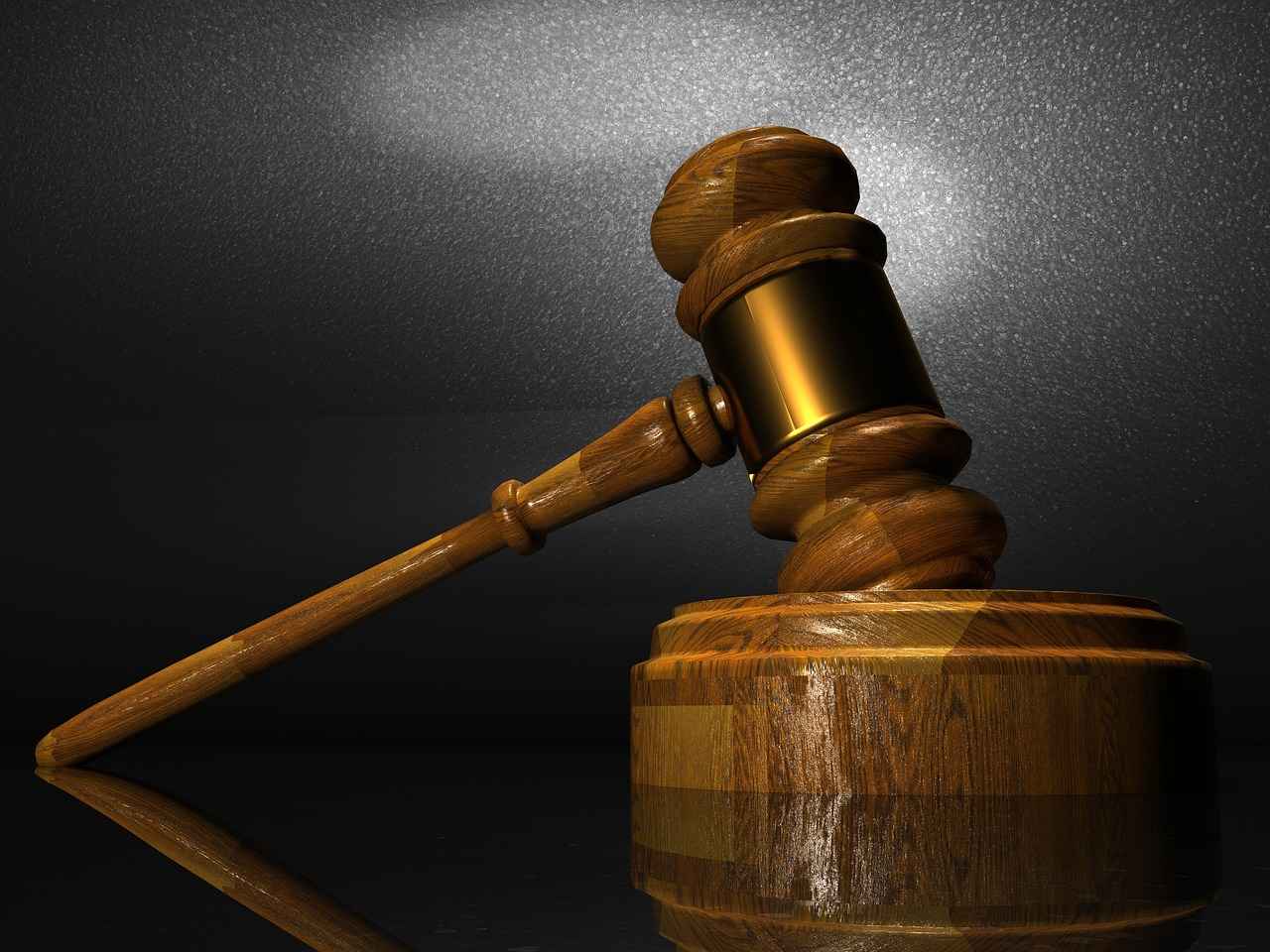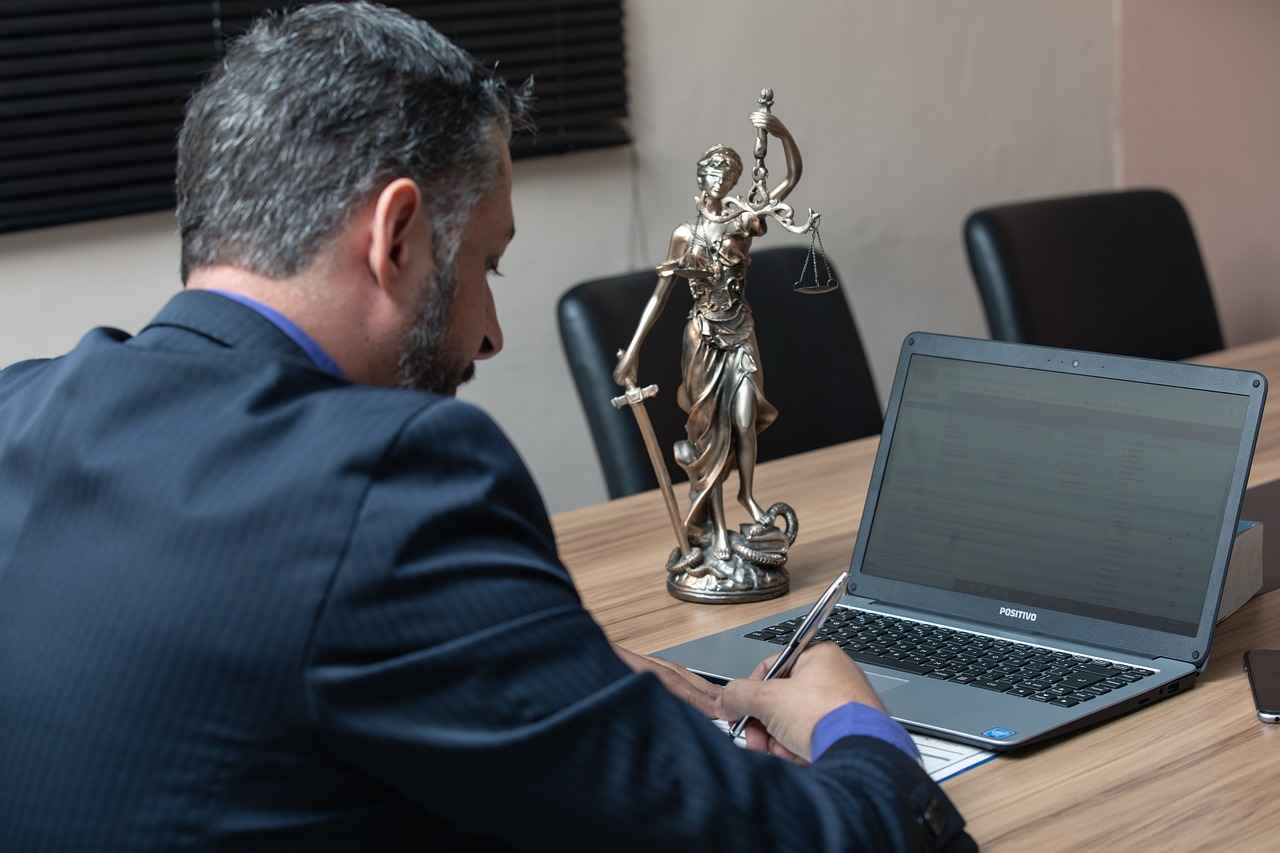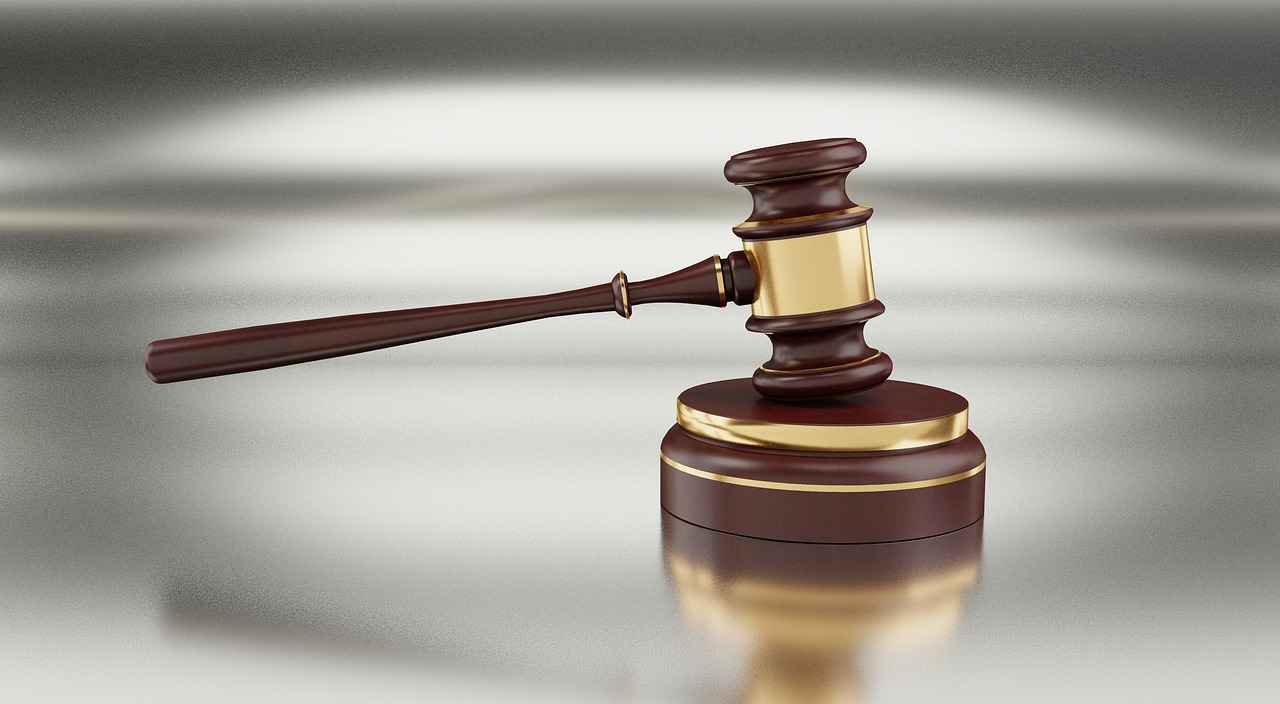This article discusses the most common types of legal cases in the U.S. and provides expert guidance on finding qualified attorneys in Minneapolis, Minnesota.
Legal issues can arise in various forms, and understanding the most common types of legal cases in the United States is crucial for anyone seeking legal assistance. This guide will cover prevalent case types and how to find the best legal representation in Minneapolis.
Understanding Personal Injury Cases
Personal injury law encompasses a wide range of incidents where individuals suffer harm due to another’s negligence. This could include car accidents, slip and fall incidents, or workplace injuries. To navigate this area effectively, look for attorneys who specialize in personal injury law and have a proven track record of successful settlements and verdicts. Consider checking their reviews on legal platforms and asking for referrals from friends or family.
Exploring Medical Malpractice Claims
Medical malpractice occurs when healthcare professionals fail to provide the standard of care, leading to patient harm. Victims must understand how to identify these claims and seek justice. Look for attorneys with specific experience in medical malpractice cases, as this area requires specialized knowledge. Check their success rates and client testimonials to gauge their effectiveness.
Addressing Breach of Contract Issues
Breach of contract disputes arise when one party fails to honor an agreement. Knowing the legal implications can help individuals protect their interests. Seek attorneys who have extensive experience in contract law and can provide clear guidance on your rights and options. Verify their credentials and past case outcomes to ensure you are making an informed choice.
Navigating Property Disputes
Property disputes can involve ownership, boundaries, or usage rights. Understanding the legal framework surrounding these issues is vital for resolving conflicts. When searching for an attorney, prioritize those with a background in real estate law. Look for reviews that highlight their negotiation skills and ability to resolve disputes amicably.
Landlord-Tenant Disputes Explained
Disputes between landlords and tenants often arise over lease agreements, repairs, or evictions. Familiarity with tenant rights and landlord responsibilities can help resolve these conflicts amicably. Seek attorneys who specialize in landlord-tenant law and have a solid understanding of local housing regulations. Ask about their experience in handling similar cases.
Understanding Defamation: Libel and Slander
Defamation involves damaging someone’s reputation through false statements. Knowing the difference between libel (written defamation) and slander (spoken defamation) is key to pursuing or defending against these claims effectively. Look for attorneys with expertise in media law and a strong track record in defamation cases.
Employment Disputes and Workers’ Rights
Employment disputes encompass issues like wrongful termination, discrimination, and wage claims. Understanding workers’ rights is crucial for navigating these complex legal waters. Seek attorneys who specialize in employment law and have experience representing employees. Look for those with positive client feedback and a commitment to fighting for workers’ rights.
Product Liability Cases Explained
Product liability holds manufacturers accountable for defective products causing harm. Understanding the types of claims and legal standards is essential for victims seeking compensation. When searching for an attorney, prioritize those with experience in product liability cases and a history of successful litigation against large corporations.
Wrongful Death Claims: Seeking Justice
Wrongful death claims arise when a person’s negligence leads to another’s death. Understanding the legal process can help families pursue justice and compensation for their loss. Look for compassionate attorneys who specialize in wrongful death cases and have a proven record of securing favorable settlements for their clients.
Class Action Lawsuits: Collective Justice
Class action lawsuits allow groups of individuals to collectively sue for damages. Understanding how these cases work is essential for those affected by widespread harm. Seek attorneys who have experience in handling class action lawsuits and can demonstrate their ability to represent large groups effectively.
Assault and Battery: Legal Definitions and Consequences
Assault and battery involve intentional harm or threat of harm. Understanding the legal definitions and implications can help victims seek justice and defend against false accusations. Look for attorneys with experience in criminal law, particularly those who have handled assault and battery cases.
Criminal Offenses: Drug, Theft, and Burglary
Criminal offenses, including drug-related crimes and theft, carry serious legal consequences. Understanding the legal process can help individuals navigate their defense strategies effectively. When looking for a criminal defense attorney, prioritize those with a strong background in criminal law and a track record of successful defenses.
Family Law: Divorce and Child Custody Issues
Family law encompasses divorce, child custody, and support issues. Understanding the legal landscape can help individuals navigate these emotionally charged matters with clarity and confidence. Seek attorneys who specialize in family law and have a compassionate approach, as these cases often require sensitivity and understanding.
In conclusion, finding the right attorney for your legal needs in Minneapolis requires thorough research and consideration of their expertise, experience, and client reviews. By following the tips outlined in this article, you can make an informed decision and secure the best legal representation for your case.

Understanding Personal Injury Cases
Personal injury law is a vital area of legal practice that addresses incidents where individuals suffer harm due to the negligence or wrongful actions of others. This field encompasses a wide range of scenarios, including but not limited to automobile accidents, slip and fall incidents, workplace injuries, and defective products. Understanding the nuances of personal injury cases is crucial for victims seeking to obtain fair compensation for their suffering and losses.
In personal injury cases, the burden of proof lies with the plaintiff, meaning they must demonstrate that the defendant’s negligence directly caused their injuries. This often involves gathering evidence, such as medical records, eyewitness testimonies, and accident reports. Victims must also be aware of the statute of limitations, which varies by state, as it dictates the time frame within which they can file a claim.
When pursuing a personal injury case, it is essential to understand the types of damages that may be recoverable. These can include:
- Medical Expenses: Costs for treatment, rehabilitation, and ongoing care.
- Lost Wages: Compensation for income lost due to the inability to work.
- Pain and Suffering: Damages for physical pain and emotional distress.
- Loss of Consortium: Compensation for the impact on relationships with loved ones.
Finding the right attorney to represent you in a personal injury case is crucial. Here are some expert tips for locating qualified legal professionals:
- Research Online: Utilize legal directories such as Avvo or Martindale-Hubbell to find attorneys with strong ratings and reviews.
- Consult Local Bar Associations: Many state and local bar associations offer referral services to connect clients with qualified attorneys in specific practice areas.
- Ask for Recommendations: Personal referrals from friends, family, or colleagues can lead to trustworthy legal representation.
Once you have a list of potential attorneys, consider scheduling initial consultations. During these meetings, assess their experience in handling personal injury cases, their communication style, and their approach to client care. It’s also vital to inquire about their fee structure—many personal injury attorneys work on a contingency fee basis, meaning they only get paid if you win your case.
Be cautious of red flags, such as attorneys who guarantee specific outcomes or pressure you to settle quickly. A reputable lawyer will provide a realistic assessment of your case and guide you through the legal process without undue pressure.
In summary, understanding personal injury law and knowing how to find a qualified attorney can significantly impact your ability to secure the compensation you deserve. By being informed and diligent in your search, you can navigate this complex area of law with confidence.

Exploring Medical Malpractice Claims
Medical malpractice is a serious issue that arises when healthcare professionals fail to meet the accepted standard of care, resulting in harm to patients. Understanding the intricacies of this legal domain is crucial for victims seeking justice and compensation for their suffering. In the U.S., medical malpractice claims can encompass a wide range of scenarios, from surgical errors to misdiagnosis, and even medication mistakes. Each case has its own unique circumstances, which can significantly impact the outcome.
To successfully navigate a medical malpractice claim, it is essential to establish that the healthcare provider acted negligently. This typically involves demonstrating that the provider’s actions deviated from what is considered acceptable practice in the medical community. Victims must gather substantial evidence, which may include medical records, expert testimonies, and other documentation that supports their claims. This process can be daunting, particularly for individuals who are already coping with the physical and emotional toll of their injuries.
When pursuing a medical malpractice claim, victims should consider the following steps:
- Consult with an Experienced Attorney: Seek out legal professionals who specialize in medical malpractice cases. Look for attorneys with a proven track record and positive client reviews.
- Gather Evidence: Compile all relevant medical records, bills, and documentation related to your treatment. This information is vital for building your case.
- Understand the Statute of Limitations: Each state has a specific time frame within which a medical malpractice claim must be filed. Be aware of these deadlines to avoid losing your right to sue.
- Consider Expert Testimony: In many cases, expert witnesses are necessary to establish the standard of care and how it was breached. Ensure your attorney has access to qualified experts.
Finding the right attorney is paramount. In metropolitan areas like New York City or Los Angeles, you can utilize various platforms such as Avvo, FindLaw, or Martindale-Hubbell to research and compare lawyers. Look for credentials such as board certification in medical malpractice law, which indicates a higher level of expertise. Additionally, pay attention to client reviews and ratings, which can provide insight into an attorney’s reputation and success rate.
Be cautious of red flags when selecting a lawyer. Avoid attorneys who make unrealistic promises about the outcome of your case or those who lack experience in handling medical malpractice claims. A reputable lawyer will provide a transparent overview of the potential challenges and realistic expectations based on the specifics of your situation.
In summary, medical malpractice claims are complex and require a strategic approach to secure justice. By understanding the process and taking proactive steps to find a qualified attorney, victims can significantly improve their chances of a favorable outcome. The journey may be challenging, but with the right support and resources, it is possible to hold negligent healthcare providers accountable and obtain the compensation deserved.

Addressing Breach of Contract Issues
Breach of contract disputes occur when one party fails to fulfill their obligations as outlined in a legally binding agreement. These situations can arise in various contexts, including business transactions, employment agreements, and personal contracts. Understanding the legal implications of a breach is crucial for individuals and businesses alike, as it can significantly impact their rights and potential remedies.
When a contract is breached, the non-breaching party typically has several options for seeking redress. First and foremost, it is essential to determine whether the breach is considered material or minor. A material breach occurs when the failure to perform significantly undermines the contract’s purpose, while a minor breach may not affect the overall agreement’s validity. This distinction is vital, as it influences the available legal remedies.
Legal remedies for breach of contract can include:
- Damages: Monetary compensation for losses incurred due to the breach.
- Specific Performance: A court order requiring the breaching party to fulfill their contractual obligations.
- Rescission: The cancellation of the contract, returning both parties to their pre-contractual positions.
To effectively address a breach of contract issue, individuals should consider the following steps:
- Review the Contract: Carefully examine the terms of the agreement to identify the specific obligations that have not been met.
- Document Everything: Keep detailed records of all communications, actions taken, and any losses incurred as a result of the breach.
- Seek Legal Counsel: Consulting with an experienced attorney can provide valuable guidance on the best course of action and potential remedies.
When looking for a lawyer to handle breach of contract disputes, consider the following criteria:
- Experience: Look for attorneys who specialize in contract law and have a proven track record in breach of contract cases.
- Reputation: Research online reviews, client testimonials, and professional ratings to gauge the attorney’s credibility.
- Communication Skills: Choose a lawyer who communicates clearly and promptly, ensuring that you are kept informed throughout the process.
- Fee Structure: Understand the attorney’s fee arrangements, whether hourly, flat fee, or contingency-based, to avoid unexpected costs.
In metropolitan areas such as New York City, Los Angeles, and Chicago, numerous platforms can assist in finding qualified attorneys. Websites like Avvo, Lawyers.com, and FindLaw offer searchable databases where individuals can filter lawyers by specialty and location.
However, potential clients should be cautious of red flags when selecting legal representation. These may include:
- Lack of Transparency: If an attorney is unwilling to provide clear information about their experience or fee structure, consider this a warning sign.
- High Pressure Tactics: Be wary of lawyers who pressure you into making quick decisions without allowing you to fully consider your options.
- Negative Reviews: Consistent negative feedback from previous clients can indicate underlying issues with the attorney’s practice.
By understanding the complexities of breach of contract disputes and taking the necessary steps to find a qualified attorney, individuals can protect their interests and pursue effective remedies. With the right legal support, navigating these challenges becomes significantly more manageable.

Navigating Property Disputes
Property disputes are a common source of conflict and can arise from various issues, including ownership, boundaries, and usage rights. These disputes can involve individuals, businesses, or even government entities, making it essential to understand the legal framework that governs property rights. In this section, we will explore the nature of property disputes, the legal principles involved, and practical steps for resolving these conflicts.
Property disputes often stem from misunderstandings or disagreements over land use. For instance, two neighbors might clash over property boundaries, leading to disputes about fences, trees, or other encroachments. Additionally, issues may arise regarding the rights to use a property, such as easements or leases, which can complicate relationships between landlords and tenants or between co-owners of a property.
To navigate property disputes effectively, individuals should first familiarize themselves with the relevant laws that govern property ownership and rights in their jurisdiction. This includes understanding concepts like title deeds, zoning laws, and property taxes. Each state has its own set of property laws, so consulting a local attorney who specializes in property law is crucial. They can provide insights into the specific regulations that apply to your situation.
When facing a property dispute, consider the following steps:
- Gather Documentation: Collect all relevant documents, including title deeds, survey maps, and any correspondence related to the dispute. This evidence will be vital in supporting your claim.
- Communicate: Attempt to resolve the issue amicably through open communication with the other party. Sometimes, a simple conversation can clarify misunderstandings.
- Seek Mediation: If direct communication fails, consider mediation. A neutral third party can help facilitate a resolution without the need for litigation.
- Consult an Attorney: If the dispute escalates, seek legal representation. An attorney can help you understand your rights and represent your interests in negotiations or court.
In addition to these steps, it is essential to recognize the importance of legal precedent and case law in property disputes. Courts often rely on previous rulings to make decisions, so understanding how similar cases have been resolved can provide valuable insights into how your case may unfold.
Moreover, be aware of potential red flags when dealing with property disputes. These may include:
- Unclear Ownership: If the ownership of the property is disputed, it can complicate matters. Ensure that all parties have clear documentation of ownership.
- Failure to Follow Legal Procedures: Property disputes often require adherence to specific legal processes. Ignoring these can lead to unfavorable outcomes.
- Intimidation or Harassment: If the other party resorts to intimidation tactics, it may be necessary to involve law enforcement or legal counsel.
In summary, navigating property disputes requires a thorough understanding of the legal landscape and proactive steps to address conflicts. By gathering documentation, communicating openly, and seeking legal advice when necessary, individuals can protect their property rights and work towards a resolution that respects all parties involved.

Landlord-Tenant Disputes Explained
Disputes between landlords and tenants can often lead to significant stress and confusion for both parties involved. These conflicts frequently arise from issues related to lease agreements, necessary repairs, or the process of eviction. Understanding the rights of tenants and the responsibilities of landlords is essential in resolving these disputes amicably and effectively.
When a tenant feels that their rights are being violated, whether due to a lack of repairs or an unjust eviction notice, it is crucial for them to be informed about their legal standing. For instance, many states have laws that require landlords to maintain their properties in a habitable condition. This means that if a tenant reports a necessary repair, the landlord is obligated to address the issue within a reasonable timeframe. Failure to do so can lead to legal repercussions for the landlord.
On the other hand, landlords also have rights that must be respected. For example, they have the right to enter the property for inspections or repairs, but they must provide reasonable notice to the tenant. Understanding these mutual rights can help both parties communicate more effectively and prevent misunderstandings that could escalate into disputes.
- Know Your Lease Agreement: Both landlords and tenants should thoroughly understand the terms of the lease. This document serves as the foundation for the relationship and outlines the responsibilities of each party.
- Document Everything: Keeping records of all communications, repairs requested, and any payments made can be invaluable in resolving disputes.
- Seek Mediation: If conflicts arise, consider mediation as a first step. This process can help both parties reach a mutually agreeable solution without the need for legal action.
- Consult Legal Experts: If the situation escalates, seeking legal advice can provide clarity on rights and options available to both landlords and tenants.
In conclusion, resolving landlord-tenant disputes requires a clear understanding of the rights and responsibilities of both parties. By fostering open communication and seeking legal guidance when necessary, conflicts can often be resolved without the need for litigation.

Understanding Defamation: Libel and Slander
Defamation is a serious legal issue that can have significant consequences for both individuals and businesses. It refers to the act of damaging someone’s reputation through false statements. Understanding the nuances of defamation is essential, especially when it comes to distinguishing between libel and slander. This knowledge is crucial for anyone looking to pursue or defend against defamation claims effectively.
Defamation can occur in various forms, with libel representing defamation in written or published formats, while slander pertains to spoken statements. The distinction between these two forms is vital, as the legal standards and evidentiary requirements can differ significantly. For instance, in a libel case, the plaintiff may have an easier time proving their claim due to the permanence of written statements, which can be reviewed and analyzed. In contrast, slander often requires the plaintiff to demonstrate that the statement caused actual harm, as spoken words can be fleeting and less impactful.
To successfully navigate a defamation case, it is essential to establish the following elements:
- False Statement: The statement in question must be proven false.
- Publication: The statement must have been communicated to a third party.
- Fault: The plaintiff must demonstrate that the defendant acted with negligence or actual malice, depending on whether the plaintiff is a public figure or a private individual.
- Harm: The plaintiff must show that their reputation has been harmed as a result of the statement.
When pursuing a defamation claim, individuals should seek legal counsel experienced in this area of law. A qualified attorney can help navigate the complexities of defamation cases, including gathering evidence, understanding state-specific laws, and formulating a strategy for success. Additionally, individuals should be cautious about the information they share, as discussing a potential defamation case publicly can inadvertently affect the outcome.
In conclusion, understanding the intricacies of defamation, including the differences between libel and slander, is critical for anyone involved in such cases. By working with an experienced attorney, individuals can better protect their reputations and seek justice in the face of false statements.

Employment Disputes and Workers’ Rights
Employment disputes represent a significant area of concern in the workplace, encompassing various issues such as wrongful termination, discrimination, and wage claims. Understanding the intricacies of these disputes is essential for both employees and employers to navigate the complex legal landscape effectively.
In the United States, employment laws are designed to protect workers’ rights and ensure fair treatment in the workplace. Wrongful termination occurs when an employee is fired in violation of federal or state laws, or in breach of an employment contract. This can include dismissals based on race, gender, age, or whistleblowing activities. Employees who believe they have been wrongfully terminated should gather evidence, such as emails or witness statements, and consult a qualified attorney to evaluate their case.
Discrimination in the workplace can manifest in various forms, including hiring practices, promotions, and workplace harassment. Federal laws, such as Title VII of the Civil Rights Act, prohibit discrimination based on race, color, religion, sex, or national origin. Employees facing discrimination should document incidents meticulously and seek legal counsel to understand their rights and potential remedies.
Another critical area of employment law is wage claims. These claims often arise from unpaid wages, overtime violations, or misclassification of employees as independent contractors. The Fair Labor Standards Act (FLSA) sets the groundwork for minimum wage and overtime pay, and employees who suspect wage violations should maintain detailed records of hours worked and pay received. Consulting an attorney who specializes in employment law can provide clarity on how to proceed with a wage claim.
When seeking legal representation for employment disputes, individuals should consider several factors:
- Experience: Look for attorneys who specialize in employment law and have a proven track record of handling similar cases.
- Credentials: Check for certifications, bar association memberships, and any accolades that demonstrate expertise in employment law.
- Client Reviews: Online reviews and testimonials can provide insights into the attorney’s reputation and success rate.
- Consultation: Many attorneys offer free initial consultations. Use this opportunity to assess their approach and expertise.
- Communication: Choose an attorney who communicates clearly and promptly, ensuring you feel supported throughout the legal process.
Red flags to watch for include:
- Attorneys who guarantee specific outcomes, as legal cases can be unpredictable.
- High-pressure tactics to secure your business, which may indicate a lack of professionalism.
- Inadequate communication or unresponsiveness, which can lead to frustration during your case.
In metropolitan areas such as New York City, Los Angeles, and Chicago, finding qualified attorneys can be competitive. Utilize online platforms like Avvo, FindLaw, and LegalMatch to compare attorneys based on their experience, client reviews, and areas of expertise. Local bar associations can also provide referrals to reputable attorneys in your area.
In summary, understanding employment disputes and workers’ rights is crucial for navigating the legal landscape effectively. By being informed and proactive, individuals can seek the necessary legal support to address their employment-related issues and protect their rights.

Product Liability Cases Explained
Product liability is a crucial area of law that holds manufacturers, distributors, and retailers accountable for injuries caused by defective products. This legal framework is designed to protect consumers from harm due to negligence in the design, manufacturing, or marketing of products. Understanding the intricacies of product liability cases is essential for victims seeking compensation for their injuries.
In the United States, product liability claims generally fall into three categories:
- Design Defects: These occur when a product is inherently unsafe due to its design. For instance, a car model that is prone to rolling over during sharp turns can be considered to have a design defect.
- Manufacturing Defects: This type of defect arises during the production process. For example, if a batch of toys contains harmful chemicals due to a lapses in quality control, those toys can be deemed defective.
- Marketing Defects: These defects involve inadequate warnings or instructions. A medication that lacks proper usage guidelines and leads to adverse effects could fall under this category.
Victims of product liability injuries must understand the legal standards that apply to their claims. In most cases, the plaintiff must demonstrate that the product was defective and that this defect directly caused their injuries. Additionally, the plaintiff must show that they were using the product as intended at the time of the injury.
When pursuing a product liability claim, it’s essential to gather evidence, including:
- Medical records documenting injuries sustained.
- Photographs of the defective product.
- Receipts or proof of purchase.
- Witness statements, if applicable.
Hiring a qualified attorney with experience in product liability cases is crucial for navigating the complexities of these claims. Here are some steps to consider when searching for the right legal representation:
- Research and Referrals: Start by seeking recommendations from friends, family, or professionals who have dealt with similar cases. Online reviews and legal directories can also provide insights into potential lawyers.
- Check Credentials: Ensure that the attorney specializes in product liability law and has a successful track record in handling similar cases. Look for their education, bar association membership, and any relevant certifications.
- Initial Consultation: Many attorneys offer free consultations. Use this opportunity to discuss your case and gauge the attorney’s expertise, communication style, and willingness to advocate for your interests.
- Assess Communication: Effective communication is vital in legal matters. Ensure that the attorney is responsive and explains complex legal terms in a way that you can understand.
- Understand Fee Structures: Clarify the attorney’s fee structure, including any contingency fees, hourly rates, or retainer fees. Make sure you understand how and when you will be billed.
- Avoid Red Flags: Be cautious of attorneys who make unrealistic promises, pressure you into signing contracts, or lack transparency about their fees and processes.
In conclusion, product liability cases are complex and require a thorough understanding of the law and the ability to navigate the legal system effectively. By knowing the types of defects and the legal standards involved, as well as how to find a qualified attorney, victims can pursue their claims with greater confidence and increase their chances of receiving the compensation they deserve.

Wrongful Death Claims: Seeking Justice
Wrongful death claims represent a significant area of personal injury law, arising when an individual dies due to the negligence or wrongful act of another. This legal concept is crucial for families seeking justice and compensation for their tragic loss. Understanding the legal process surrounding these claims can empower families to navigate the complexities involved and pursue their rightful claims effectively.
In the United States, wrongful death claims can stem from various circumstances, including automobile accidents, medical malpractice, workplace accidents, and defective products. Each case is unique, and the legal framework can vary by state. Therefore, it is essential for families to engage with experienced legal professionals who specialize in wrongful death cases.
When pursuing a wrongful death claim, families must first establish that the death resulted from another party’s negligence. This involves demonstrating that the responsible party had a duty of care towards the deceased, breached that duty, and that this breach directly caused the death. Gathering evidence such as medical records, accident reports, and eyewitness accounts is vital in building a strong case.
Moreover, it’s important for families to understand the statute of limitations for wrongful death claims, which varies by state. In many jurisdictions, families have a limited time frame, often between one to three years from the date of death, to file a claim. Missing this deadline can result in the loss of the right to seek compensation.
Families should also consider the types of damages they can claim. These may include economic damages such as lost wages and funeral expenses, as well as non-economic damages like pain and suffering, loss of companionship, and emotional distress. Understanding the full scope of damages available is critical for ensuring that families receive fair compensation for their loss.
Finding the right attorney is a crucial step in the wrongful death claim process. Families should look for lawyers with a strong track record in handling wrongful death cases. Key factors to consider include:
- Experience: Seek attorneys who have extensive experience and a proven success rate in wrongful death claims.
- Specialization: Look for lawyers who specialize in personal injury or wrongful death law.
- Reputation: Research online reviews and ask for references to gauge the attorney’s reputation in the legal community.
- Communication: Choose an attorney who communicates clearly and is responsive to your needs.
- Fees: Understand the attorney’s fee structure, as many wrongful death lawyers work on a contingency fee basis, meaning they only get paid if you win your case.
Additionally, it’s wise to avoid potential red flags when hiring a lawyer. Be cautious of attorneys who guarantee specific outcomes, pressure you into signing contracts quickly, or have poor communication skills. A trustworthy attorney will provide honest assessments and allow you to make informed decisions without undue haste.
In summary, wrongful death claims are a complex but essential avenue for families seeking justice after the loss of a loved one. By understanding the legal process, gathering necessary evidence, and finding a qualified attorney, families can pursue their claims with confidence and strive for the compensation they deserve.

Class Action Lawsuits: Collective Justice
Class action lawsuits serve as a powerful tool for individuals seeking justice against entities whose actions have caused widespread harm. These legal proceedings allow a group of people, often facing similar grievances, to band together and sue a defendant for damages. Understanding the intricacies of class action lawsuits is vital for those affected by large-scale issues, such as consumer fraud, environmental disasters, or corporate misconduct.
What is a Class Action Lawsuit?
A class action lawsuit is a legal action filed by one or more individuals on behalf of a larger group who have suffered similar harm. This type of lawsuit is particularly beneficial when individual claims might be too small to pursue on their own, making it economically unfeasible for each person to hire an attorney. By consolidating these claims, plaintiffs can share legal costs and resources, increasing their chances of achieving a favorable outcome.
How Does the Process Work?
The class action process typically begins with the filing of a complaint in court, where the lead plaintiff (or plaintiffs) outlines the claims against the defendant. The court then evaluates whether the case meets the criteria for class certification, which includes:
- Numerosity: The class must be large enough that individual lawsuits would be impractical.
- Commonality: There must be common questions of law or fact among the claims.
- Typicality: The claims of the representative parties must be typical of the claims of the class.
- Adequacy: The representative parties must adequately protect the interests of the class.
If certified, the lawsuit proceeds, and the court will manage the case on behalf of the entire class. This can include notifying class members, conducting discovery, and ultimately reaching a settlement or going to trial.
Benefits of Class Action Lawsuits
Class action lawsuits offer several advantages:
- Cost-Effective: Individuals can share legal fees, making it more affordable to pursue justice.
- Efficiency: Resolving multiple claims in one lawsuit saves time and resources for both the court and the parties involved.
- Increased Leverage: A collective approach can put significant pressure on defendants, often leading to settlements that individual lawsuits might not achieve.
- Public Awareness: Class actions can bring attention to issues that may otherwise go unnoticed, promoting accountability for corporations and institutions.
Finding the Right Attorney for Class Action Lawsuits
When considering a class action lawsuit, finding an experienced attorney is crucial. Here are some tips:
- Look for Specialization: Seek attorneys who specialize in class action lawsuits or have experience in the relevant field (e.g., consumer protection, environmental law).
- Check Credentials: Verify their education, bar membership, and any relevant certifications. Membership in organizations such as the American Association for Justice can be a good sign.
- Research Track Record: Investigate their history of successful class action cases, including settlements and verdicts.
- Consult Reviews and Testimonials: Look for client reviews and testimonials to gauge their reputation and client satisfaction.
- Initial Consultation: Many attorneys offer free consultations. Use this opportunity to ask questions about their experience, approach, and fees.
Red Flags to Avoid
While searching for a lawyer, be vigilant for potential red flags:
- High Pressure Tactics: Avoid attorneys who pressure you into making quick decisions or signing agreements.
- Lack of Transparency: Be cautious if the attorney is unwilling to discuss fees or provide clear information about the case process.
- Inexperience: Steer clear of lawyers who lack experience in class action lawsuits or relevant legal matters.
- Poor Communication: If an attorney is difficult to reach or does not respond promptly to inquiries, it may indicate future communication issues.
In conclusion, class action lawsuits can be a vital avenue for seeking justice and compensation for widespread harm. Understanding how these cases work and finding the right attorney can significantly impact the outcome. By being informed and proactive, individuals can navigate the complexities of class action litigation more effectively.

Assault and Battery: Legal Definitions and Consequences
Assault and battery are serious offenses that can have significant legal consequences. Understanding the nuances of these terms is essential for both victims and those accused. Assault typically refers to the act of threatening someone with harm, creating a reasonable fear of imminent danger. In contrast, battery involves the actual physical contact or harm inflicted upon another person. Both offenses are often intertwined, but they have distinct legal definitions that can impact the outcome of a case.
In many jurisdictions, assault can occur even without physical contact. For example, if a person raises a fist in a threatening manner, that could be classified as assault, provided the victim perceives an imminent threat. Battery, however, requires that physical harm or offensive contact occurs. This distinction is crucial, as the legal ramifications differ significantly between the two. Victims of assault and battery may seek compensation for medical expenses, emotional distress, and lost wages, among other damages.
When pursuing a case of assault or battery, it is imperative for victims to gather evidence, which can include witness statements, medical records, and police reports. This documentation can strengthen their case and provide a clearer picture of the incident. Additionally, understanding the statute of limitations for filing claims is essential, as these laws vary by state and can limit the time a victim has to seek justice.
For those accused of assault or battery, it is equally important to understand the legal implications. False accusations can lead to severe consequences, including criminal charges, fines, and even imprisonment. It is crucial to engage a qualified attorney who specializes in criminal defense to navigate these complex legal waters. A skilled lawyer can help mount a robust defense, potentially mitigating the consequences of the charges.
In summary, the legal definitions of assault and battery are critical for both victims seeking justice and individuals facing accusations. Understanding these terms, their implications, and the legal processes involved can empower individuals to take appropriate action, whether pursuing a claim or defending against charges.

Criminal Offenses: Drug, Theft, and Burglary
Criminal offenses represent some of the most serious legal challenges individuals can face, especially in a bustling urban environment like Minneapolis. Among these offenses, drug-related crimes, theft, and burglary are particularly prevalent, each carrying significant legal ramifications. Understanding the nuances of these offenses is essential for anyone navigating the legal system.
When it comes to drug-related crimes, the legal landscape can be complex, with laws varying significantly by state. Offenses can range from possession of controlled substances to trafficking and distribution. Penalties can include hefty fines, imprisonment, and a permanent criminal record that may hinder future employment opportunities. Individuals accused of such crimes should seek legal counsel experienced in drug law to explore defense strategies, such as challenging the legality of the search and seizure that led to the arrest.
Theft, which encompasses a wide range of offenses from shoplifting to grand theft, also carries severe consequences. The classification of theft—whether it is considered a misdemeanor or felony—depends on the value of the property stolen. Legal representation is crucial in these cases to negotiate plea deals or present a robust defense during trial. An attorney can help individuals understand their rights and the potential outcomes based on the specifics of their case.
Burglary involves entering a structure with the intent to commit a crime, typically theft. This offense can lead to severe penalties, including lengthy prison sentences. Defending against burglary charges often requires a skilled attorney who can argue against the prosecution’s claims, potentially demonstrating lack of intent or mistaken identity. Legal expertise is vital to navigate the complexities of such cases and to ensure that the accused’s rights are protected throughout the legal process.
In navigating these serious allegations, individuals should prioritize finding a qualified attorney who specializes in criminal defense. Here are some practical steps to consider:
- Research and Referrals: Start by asking friends or family for recommendations. Online platforms like Avvo and Martindale-Hubbell can provide insights into an attorney’s reputation and client reviews.
- Check Credentials: Look for attorneys with specific experience in criminal law and a track record of successful case outcomes. Verify their standing with the state bar association.
- Consultations: Many attorneys offer free initial consultations. Use this opportunity to discuss your case and gauge their expertise and approach.
- Assess Communication: Choose an attorney who communicates clearly and promptly. A good attorney should be able to explain complex legal terms in a way that is easy to understand.
- Avoid Red Flags: Be cautious of attorneys who guarantee outcomes or pressure you into making quick decisions. Trustworthy lawyers will provide realistic expectations based on their experience.
In conclusion, understanding the legal implications of criminal offenses such as drug crimes, theft, and burglary is essential for anyone facing such charges. With the right legal representation, individuals can navigate their defense strategies effectively, ensuring their rights are protected throughout the legal process.

Family Law: Divorce and Child Custody Issues
Family law is a vital area of legal practice that addresses various issues affecting families, including divorce, child custody, and support matters. Navigating these emotionally charged situations can often feel overwhelming. Understanding the legal landscape can empower individuals to make informed decisions and approach these challenges with clarity and confidence.
One of the most significant aspects of family law is divorce. This process involves the legal dissolution of a marriage and can include complex issues such as asset division, spousal support, and child custody arrangements. It is crucial for individuals going through a divorce to seek legal representation that specializes in family law. A knowledgeable attorney can provide guidance on state-specific laws, ensuring that clients understand their rights and options.
When it comes to child custody, the primary concern is always the best interests of the child. Courts typically favor arrangements that allow both parents to maintain a relationship with their children, but many factors are considered. These can include the child’s age, the parents’ living situations, and any history of abuse or neglect. Parents should be prepared to demonstrate their commitment to their child’s well-being and to negotiate custody agreements that reflect their child’s needs.
| Key Considerations in Child Custody | Details |
|---|---|
| Best Interests of the Child | Courts prioritize the child’s emotional, psychological, and physical well-being. |
| Parental Involvement | Active participation in the child’s life is viewed favorably. |
| Stability | Stable living conditions are essential for the child’s development. |
| History of Abuse | Any history of abuse or neglect will significantly impact custody decisions. |
In addition to custody, child support is another critical component of family law. This financial support is intended to cover the child’s basic needs, including education, healthcare, and other essential expenses. The amount of child support is typically determined by state guidelines, which take into account the income of both parents and the child’s needs. Parents should be aware that child support obligations can be modified if there are significant changes in circumstances, such as job loss or a change in the child’s needs.
Furthermore, it’s essential to consider the emotional aspects of family law cases. Engaging in mediation or collaborative law can be beneficial for families seeking amicable resolutions. These approaches can help parents reach agreements without the adversarial nature of traditional litigation, reducing stress for all parties involved, especially the children.
When searching for a qualified family law attorney, individuals should look for professionals with experience in handling cases similar to theirs. Here are some practical tips:
- Research Online: Use legal directories and review platforms to find attorneys with good reputations in family law.
- Check Credentials: Look for attorneys who are members of professional organizations, such as the American Academy of Matrimonial Lawyers or local bar associations.
- Ask for Referrals: Seek recommendations from friends, family, or other professionals who have had positive experiences with family law attorneys.
- Schedule Consultations: Meet with potential attorneys to discuss your case and assess their communication style and approach.
- Be Wary of Red Flags: Avoid attorneys who make unrealistic promises or who seem more interested in billing hours than in your case.
In conclusion, family law encompasses a wide range of issues that can significantly impact individuals and families. By understanding the complexities of divorce, child custody, and support matters, individuals can make informed decisions and seek the right legal representation. With the right guidance and support, navigating these challenging times can become a more manageable process.
Frequently Asked Questions
- What should I do if I’ve been injured due to someone else’s negligence?
If you’ve been injured, it’s crucial to seek medical attention first. After that, document your injuries and the circumstances surrounding the incident. Consulting with a personal injury attorney can help you understand your rights and options for pursuing compensation.
- How can I prove medical malpractice?
To prove medical malpractice, you need to establish that the healthcare provider failed to meet the standard of care, and this failure directly resulted in harm. Gathering medical records and expert testimony can be vital in building your case.
- What are my rights in a landlord-tenant dispute?
As a tenant, you have rights related to the condition of your rental unit, privacy, and protection against unfair eviction. Familiarizing yourself with local landlord-tenant laws can help you navigate disputes effectively.
- How do I file a wrongful death claim?
Filing a wrongful death claim typically involves proving that another party’s negligence caused the death. It’s advisable to consult with an attorney who can guide you through the legal process and help you gather necessary evidence.
- What is the difference between libel and slander?
Libel refers to defamatory statements made in written form, while slander involves spoken falsehoods that harm someone’s reputation. Understanding these distinctions is key when pursuing a defamation claim.














